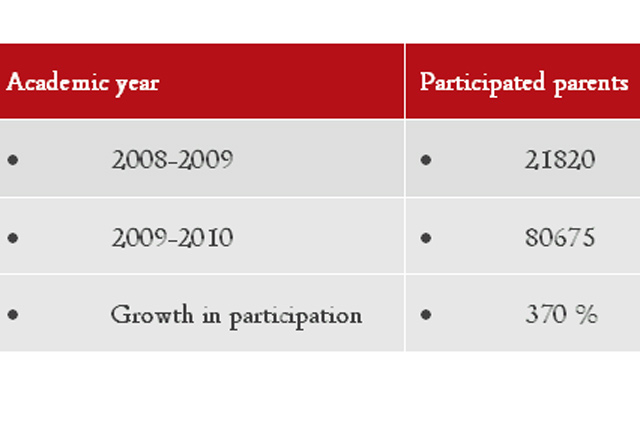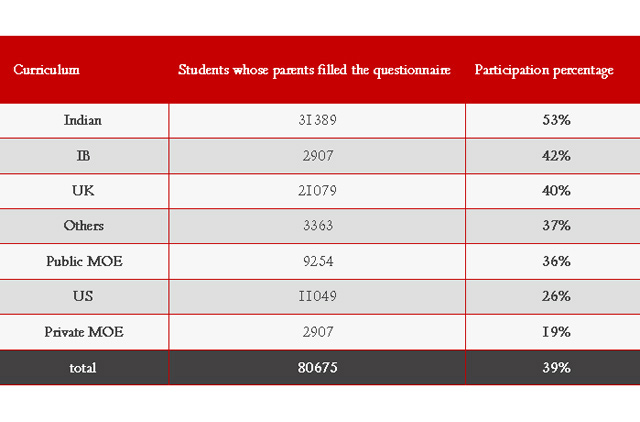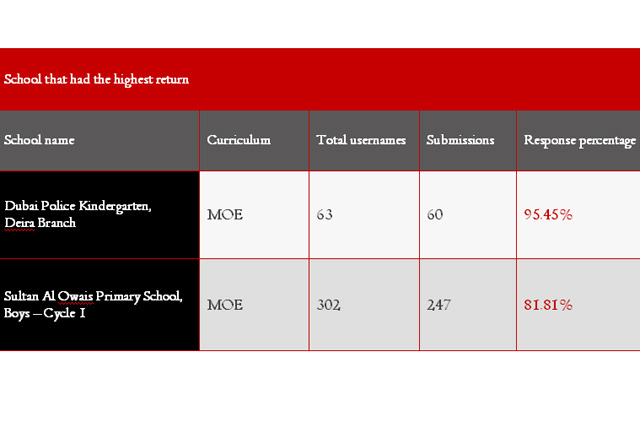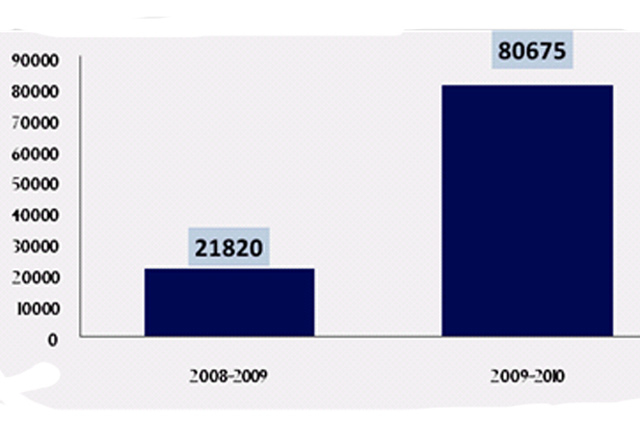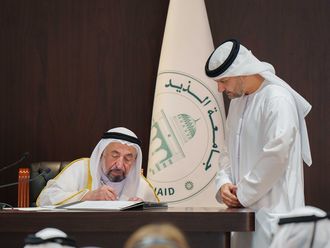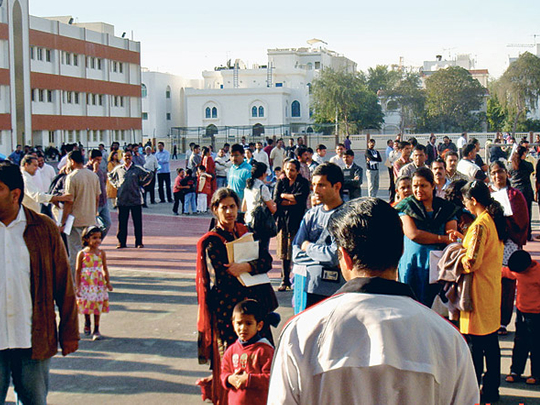
Dubai: Teaching is up to the mark; pupils are safe in schools and their progress in English, Mathematics, Arabic and Islamic studies are good.
That is what most parents of pupils from the 132 private schools and 78 public schools in Dubai think, according to a survey conducted by The Knowledge and Human Development Authority (KHDA) for the year 2009-2010.
A total of 80,765 parents evaluated the standard of education their children get through an online questionnaire, the results of which are expected to influence future education policies.
The survey asked a set of 19 questions and an overwhelming majority of the parents who took part responded positively to questions ranging from the leadership in schools, quality of teaching, safety of children and academic progress.
Learning curve
Jameela Al Muhairi, chief of Dubai School Inspection Bureau (DSIB), said the results will give the policy makers something to build on. "The answers we have received will help our policy makers to take the parents' views into account. It really does mean that parents are being given the opportunity to influence education policy," said Jameela.
The questionnaires were distributed to parents prior to the second cycle of school inspections that were conducted between October 2009 to March 2010. A total of 236 inspectors visited the schools and spent 7,444 hours in schools and made observations of approximately 15,000 lessons. A comprehensive report on these inspections will be published by the KHDA in May this year.
Emma A., a parent of pupil studying in a British curriculum school in Al Garhoud, said she thought it was a precious opportunity to let the authorities know what her concerns are regarding her children's schooling. "In addition to filling up the survey, I could write my comments on issues like transportation and treatment of parents by the school administration. I hope KHDA will take a note of all that," said Emma. Though the response was largely positive, many parents have written about the shortfalls too. "In physical training, if a child gets injured, first aid is not provided nor care is given," wrote a parent of a grade two student in the separate box given for comments in the questionnaire.
"I'm very, very unhappy with the Arabic curriculum. My children spend as much time on Arabic as they do in Math, yet they learn nearly nothing," wrote another parent of a grade three student.
According to KHDA's statistics, this year, 370 per cent more parents responded to the survey compared to the 21,820 responses in 2008-2009. The highest response, 53 per cent, was from Indian parents while parents of children at the private schools that follow the Ministry of Education had only 19 per cent participation.
Jameela said parents' response is a great advantage for inspectors who visit schools. "We hope that parents will understand how important their help is to us. Our inspectors read the parents' comments before going to a school; it is a different perspective for them to take on board when they are assessing a school," she said.
- 31,389 Indian parents respondend to the survey
- 21,079 British parents responded to the survey
- 11,049 US parents replied to the survey
- 236 inspectors visited schools
Have your say
How do you rate your children’s school? Which areas do you think schools need to work on the most to improve the quality of education in the UAE? Tell us.


